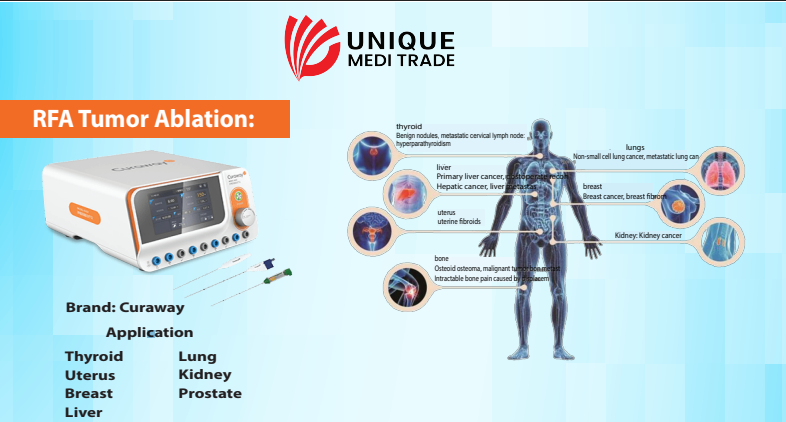Why RFA (Radiofrequency Ablation) is Considered Safer and More Reliable than MWA (Microwave Ablation) in Gynecology
1. Clinically Proven, Globally Accepted, and Long-Term Evidence
- RFA is an FDA-approved, globally accepted technique with extensive clinical validation.
- It is recommended by multiple international gynecological societies and guidelines.
- Long-term studies confirm RFA’s safety, efficacy, and durability in treating uterine fibroids.
- In comparison, MWA is relatively new in gynecological applications, and lacks robust, long-term, large-scale global clinical evidence in fibroid management.
Contact for more details: +8801717834173
2. Safer and More Controlled Thermal Ablation
- RFA offers precise and controlled ablation zones, with predictable tissue effects.
- It significantly reduces the risk of damaging surrounding healthy uterine tissue, endometrium, or nearby organs.
- MWA, due to its aggressive and rapid heating mechanism, creates larger thermal zones, increasing the risk of collateral tissue damage, especially in sensitive gynecological areas.
3. Ideal for Fertility-Preserving and Conservative Treatments
- RFA is widely recognized for fertility-preserving fibroid treatments, ensuring minimal trauma to the uterus.
- It allows accurate, layer-by-layer ablation, making it safer for reproductive-age women.
- MWA’s high-power heating may compromise the endometrial lining or myometrium, especially in inexperienced hands.
4. Lower Risk of Complications
- RFA’s thermal spread is narrow and well-contained, ensuring minimal post-procedure complications like adhesions, bleeding, or unintended necrosis.
- MWA’s larger, uncontrolled heat spread may cause more post-ablation discomfort, cramping, or adjacent organ irritation.
5. More Cost-Effective and Widely Available
- RFA systems are more widely available, cost-effective, and user-friendly in gynecology practices.
- MWA equipment is more expensive, requires specialized skills, and is not yet universally available for gynecological use.
✅ Summary:
While both RFA and MWA are effective for fibroid ablation, RFA remains the safer, more precise, and globally recommended method in gynecology, particularly for patients requiring:
- Uterus preservation
- Fertility consideration
- Low-risk, controlled, and evidence-based treatment
MWA may be used in selected cases, but RFA remains the gold standard and trusted choice for most gynecologists.

